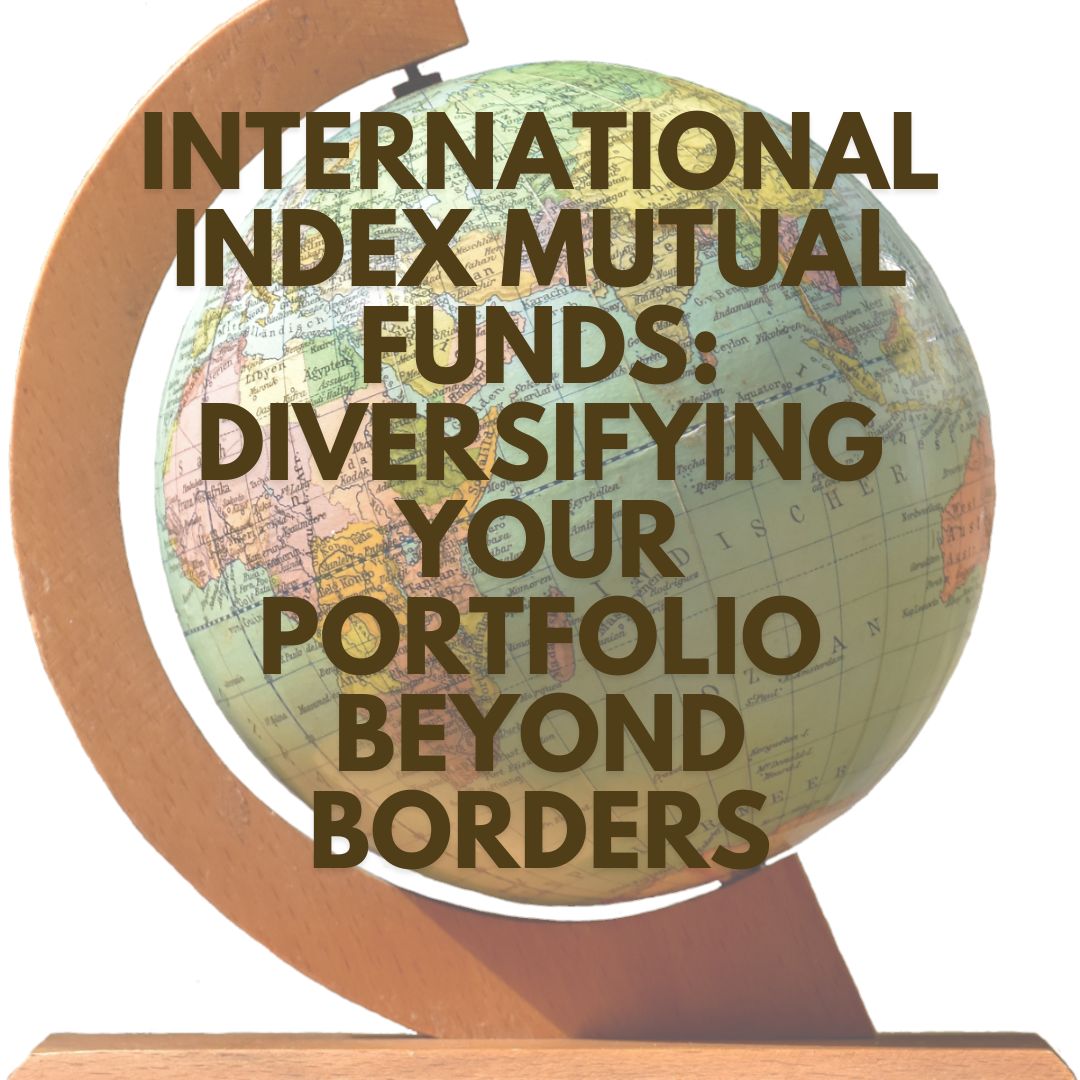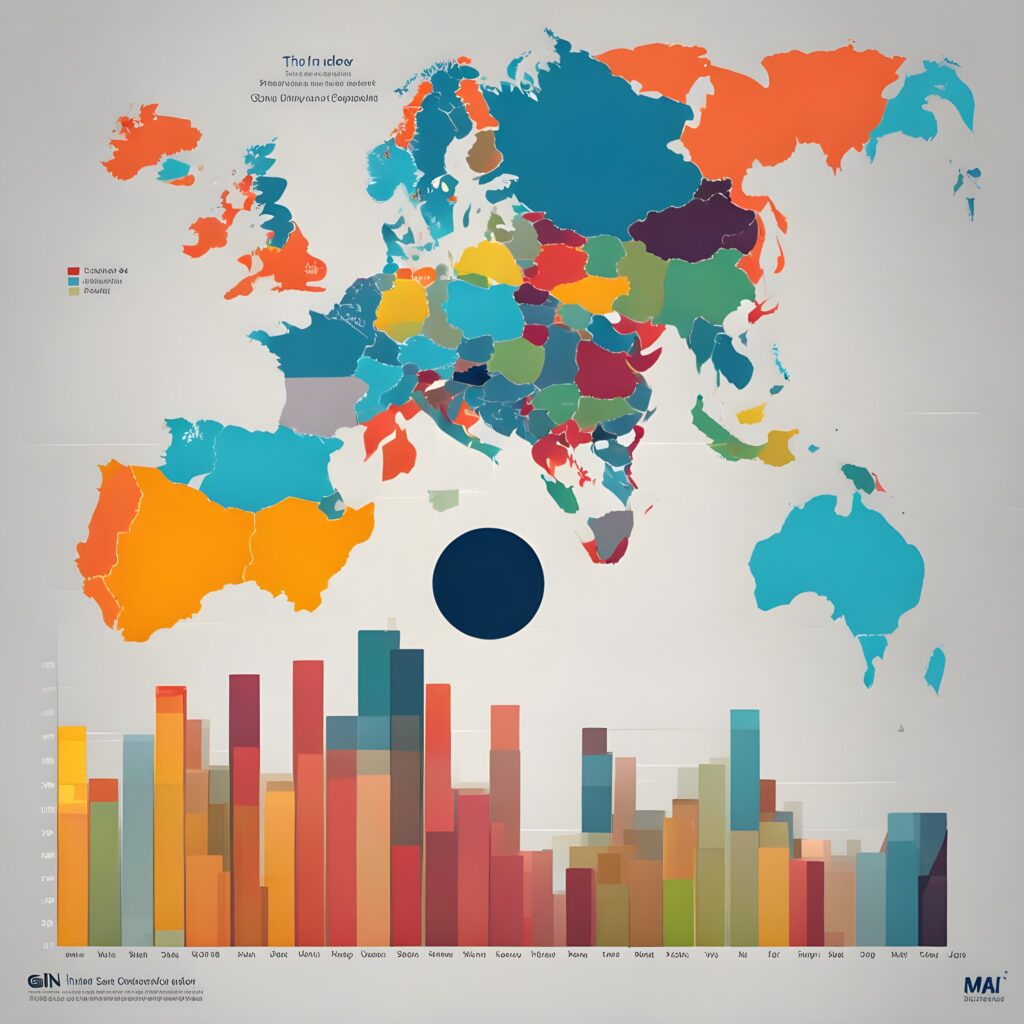International Index Mutual Funds: Diversifying Your Portfolio Beyond Borders
- 15 December 2023 | 967 Views | By Mint2Save

In today’s interconnected world, investing internationally is no longer a niche strategy reserved for seasoned investors. With the rise of international index mutual funds, it’s easier than ever for anyone to gain exposure to a wide range of companies and markets across the globe.
This article will delve into the world of international index mutual funds, exploring their benefits, risks, and key considerations for potential investors.
What are International Index Mutual Funds?
An international index mutual fund is a type of mutual fund that passively tracks a specific international stock market index, such as the MSCI EAFE Index or the Nikkei 225. Unlike actively managed funds, which rely on fund managers to select individual stocks, index funds simply aim to replicate the performance of their chosen index. This approach offers several advantages:
- Diversification: International index funds provide instant diversification across different countries, sectors, and company sizes. This helps to spread out risk and reduce the impact of volatility in any single market.
- Lower costs: Because they don’t require the research and analysis of individual stocks, international index funds typically have lower expense ratios than actively managed funds. This translates to higher returns for investors over the long term.
- Transparency: The holdings of an index fund are readily available, allowing investors to see exactly what they are buying and how their investment is performing.
Mutual Funds,Total Expense Ratio and Investor Consumerism
Benefits of Investing in International Index Mutual Funds
There are several compelling reasons to consider investing in international index mutual funds:
- Growth potential: Developed international markets offer access to established companies with strong track records and the potential for future growth. Emerging markets, while carrying higher risks, also present the opportunity for higher returns.
- Reduced risk: Diversifying beyond your home country can help to mitigate the impact of local economic downturns or market fluctuations.
- Hedging against currency fluctuations: Owning international assets can serve as a hedge against a weakening domestic currency.
Risks to Consider
While international index funds offer numerous benefits, it’s important to be aware of the potential risks involved:
- Currency fluctuations: Changes in exchange rates can impact the value of your investment, both positively and negatively.
- Political and economic instability: Certain countries may be more susceptible to political or economic turmoil, which could lead to market volatility.
- Lower liquidity: Some international markets may be less liquid than your home market, making it more difficult to buy and sell shares quickly.
Key Considerations for Investors
Before investing in international index mutual funds, carefully consider the following factors:
- Investment goals: Align your investment choices with your long-term financial goals and risk tolerance.
- Fees and expenses: Compare expense ratios and other fees associated with different funds.
- Tax implications: Understand the tax implications of investing in international assets.
- Holding period: International index funds are best suited for long-term investors, as they are less susceptible to short-term market fluctuations.
Choosing the Right International Index Mutual Fund
With a multitude of international index mutual funds available, choosing the right one for you requires careful research. Here are some tips:
- Identify your target region or market: Do you want exposure to developed markets, emerging markets, or a specific region like Europe or Asia?
- Consider the index tracked: Different indexes track different markets and sectors. Choose an index that aligns with your investment goals.
- Compare expense ratios: Look for funds with low expense ratios to maximize your returns.
- Read the fund prospectus: This document provides detailed information about the fund’s investment objectives, risks, and fees. Read about International Investment Oriented Mutual Funds
Popular International Index Mutual Funds
Some of the most popular international index mutual funds include:
- Vanguard Total International Stock Index Fund (VTIAX): This fund tracks the MSCI EAFE Index, which provides exposure to developed markets outside of the United States.
- iShares Core MSCI Emerging Markets ETF (IEMG): This ETF tracks the MSCI Emerging Markets Index, offering exposure to a diversified basket of emerging market stocks.
- SPDR S&P 500 ETF (SPY): While not strictly an international fund, SPY provides exposure to the largest companies in the United States, which can be a valuable component of a diversified portfolio.
Conclusion
International index mutual funds offer a convenient and cost-effective way for investors to gain exposure to a wide range of companies and markets around the world. By carefully considering your investment goals, risk tolerance, and the specific funds available, you can leverage the benefits of international diversification to build a well-rounded and potentially more rewarding portfolio.
Remember, investing always involves risk, and past performance is not a guarantee of future results. It’s essential to conduct thorough research and consult with a financial advisor before making any investment decisions.










